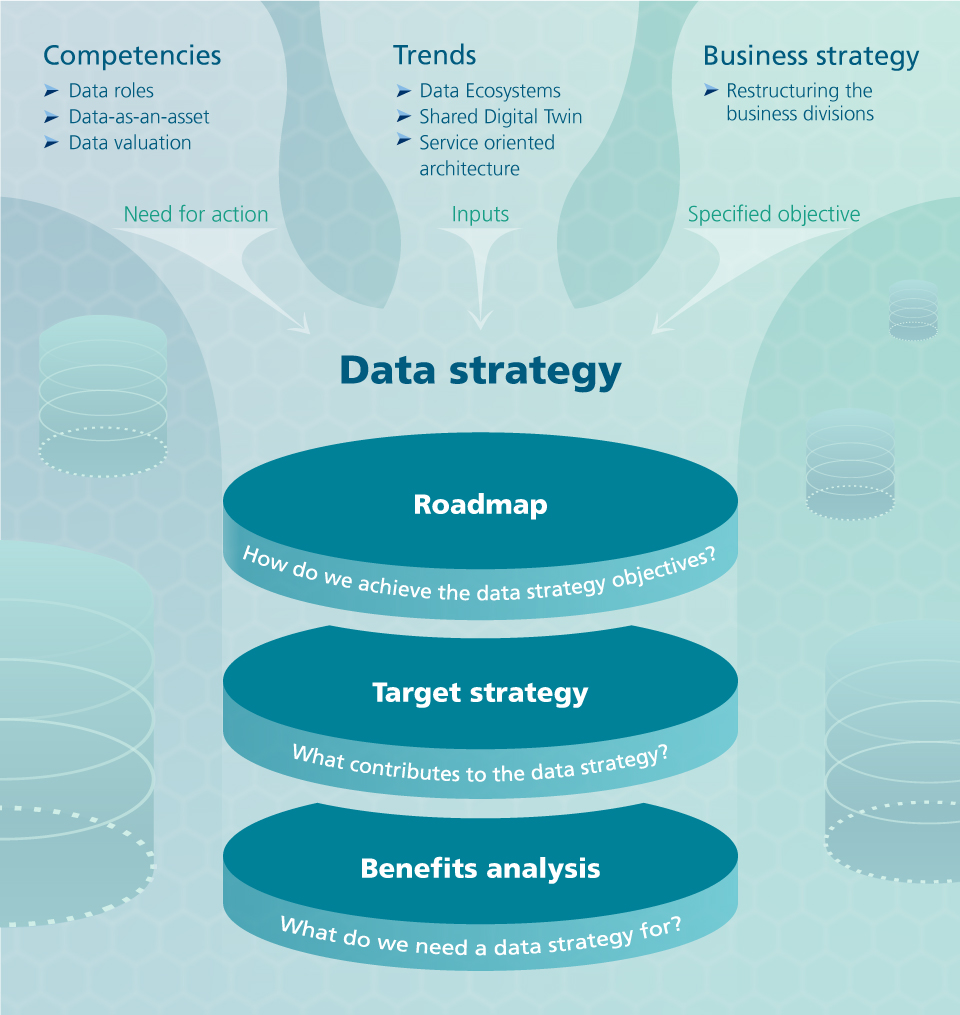Our scope of services
The increasing company-wide use of data requires a change in strategy when dealing with data. Success-critical decisions and automated processes are based on reliable data and structures. Strategic data management develops the necessary structures for the so-called data organization. The strategic positioning of the data organization allows the sustainable alignment of data domains, data roles and data applications.
At Fraunhofer ISST, the components of strategic data management that ensure success for data-driven innovations are developed. The goal of strategic data management is the introduction and optimization of a company-internal data organization to realize data democratization. Establishing a data organization increases data quality and usability of AI applications, reduces data search processes, and improves the adoption of data applications. Within its framework, the necessary data capabilities are developed, sustainably established and continuously measurable. The basis for the data organization is the establishment of a data strategy that defines long-term specifications, for example, the prerequisite for participation in data ecosystems or the type of data storage. The data organization is based on these specifications and integrates them into the data governance approaches, which is ensured by means of decentralized and/or centralized corporate units and suitable data roles such as data owners and data stewards. For efficient implementation of the workflows, the concepts are realized in data catalogs and data quality software and rolled out company-wide.
 Fraunhofer Institute for Software and Systems Engineering
Fraunhofer Institute for Software and Systems Engineering